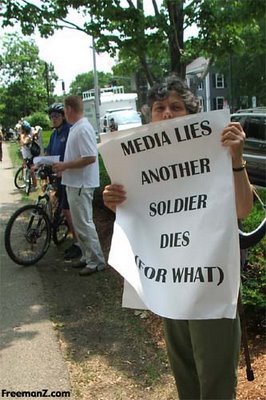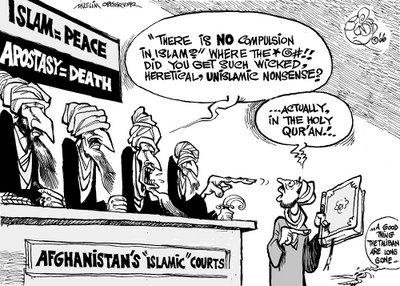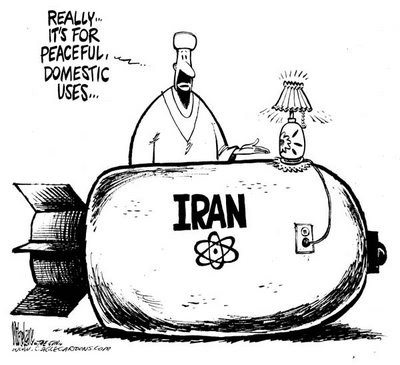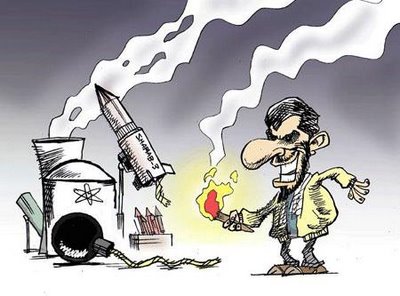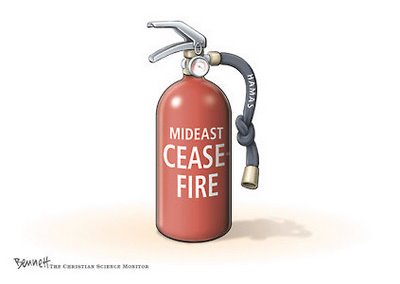 I have finally run into some information about the “Emerging Church” phenomenon. I have read many mainline Church denunciations about the “Emerging Church” phenomenon. That actually got my attention because the mainline Church also denounces the thread that I trace my Christian background. That thread is Pentecostal, Charismatic, Word of Faith and Renewal. The people I listen to have too often branded my faith heritage as heretical. That really used to bother me until I realized that Truth aligns first with the Word before it aligns with human authority.
I have finally run into some information about the “Emerging Church” phenomenon. I have read many mainline Church denunciations about the “Emerging Church” phenomenon. That actually got my attention because the mainline Church also denounces the thread that I trace my Christian background. That thread is Pentecostal, Charismatic, Word of Faith and Renewal. The people I listen to have too often branded my faith heritage as heretical. That really used to bother me until I realized that Truth aligns first with the Word before it aligns with human authority.
So below is a rather long essay on the “Emerging Church” in which I myself will have to read a few times to get a handle on that theology.
*************************************
An Emerging Church PrimerIX MARKSBy Justin TaylorSome of you may be called to be experts on the emerging church. We need experts. But I'm not that expert. And perhaps it's good for you that I'm not. In conservative evangelical circles, we can be tempted to listen to experts so that we can hear the person's conclusions: "Just tell me what to think—don't bother me with how you got there." We want the Cliff Notes on the emerging church. We want to read the cast of characters—"this guy's a wolf, that guy's a sheep," and so on.
I'm not going to do that. One of my goals is to help you understand the "emerging church." But my deeper goal would be for us to become the sort of people who know how to think about things like the emerging church. After all, the "emerging church" is not here to stay. It's a movement, and this is its season. It might be replaced in a year or so; it might stretch out for decades. Yet one thing's for sure: Emerging Church Version 2006 is going to look different next year. And the next.
As Christians, we want to train ourselves to have the mind of Christ, so that we can respond like well-trained tennis players to whatever ball flies in our direction—no matter the angle, the spin, or the speed.
DEFINING THE EMERGING CHURCHWhat Is the Emerging Church?What exactly is the "emerging church"? Here is one common way that many people think about the movement:
Popularly, the term "Emerging Church" has been applied to high-profile, youth-oriented congregations that have gained attention on account of their rapid numerical growth, their ability to attract (or retain) the twenty-somethings, and their contemporary worship that draws upon popular music styles with the accompanying pyrotechnics, and that promotes itself to the Christian sub-culture through its web-sites and by word of mouth.[1]
The emphasis here falls entirely on matters of style and demographics.
My wife recently told someone that I would be giving a talk on the emerging church. The person responded, "Is that where they light candles, sit on couches, and try to do church?" If you are a critic of the emerging church, you will probably think this definition is accurate. If you are a cheerleader, you will undoubtedly think it's unfair.
How do we find an answer? I suggest that we listen not only to the critics of the emergents, but to the emergents themselves. If possible, we should also listen to (ostensibly) disinterested third-party observers who offer a sociological perspective. In what follows, I hope to draw from all three.
Distinction Between "Emergent" and "Emerging"First, we should distinguish between "Emergent" and "Emerging." Emergent is an organization (
emergentvillage.us) or an official network of likeminded leaders and churches involved in one particular stream of the emerging "conversation." Tony Jones now serves as the first national coordinator in the United States. Emerging, on the other hand, is the term most often used to describe the much broader movement (or "conversation") of those seeking to incarnate and contextualize the gospel for postmoderns.
All that is emergent is emerging, but not all that is emerging is necessarily emergent. In other words, some pastors, churches, and writers want to retain the emerging label—or who bear emerging characteristics—without identifying themselves with or even supporting the Emergent organization.
The emerging church movement is larger than North American. There are thousands of emerging Christians in Western Europe and the South Pacific and, to a lesser extent, in Asia, Africa, and South America. My remarks pertain mainly to the American version. But keep in mind that this is part of a larger worldwide conversation with its own dynamic and nuances.
The Wikipedia DefinitionWikipedia—the free, online, open-source encyclopedia—is a helpful place to begin for defining the emerging movement as a whole:
The emerging church or emergent church is a diverse movement within Christianity that arose in the late 20th century as a reaction to the influence of modernism in Western Christianity. The movement is usually called a "conversation" by its proponents to emphasize its diffuse nature with contributions from many people and no explicitly defined leadership or direction. The emerging church seeks to deconstruct and reconstruct Christianity as its mainly Western members live in a postmodern culture. While practices and even core doctrine vary, most emergents can be recognized by the following values:
Authenticity
People in the postmodern culture seek real and authentic experiences in preference over scripted or superficial experiences. Emerging churches strive to be relevant to today's culture and daily life, whether it be through worship or service opportunities. The core Christian message is unchanged but emerging churches attempt, as the church has throughout the centuries, to find ways to reach God's people where they are to hear God's message of unconditional love.
Missional living
Christians go out into the world to serve God rather than isolate themselves within communities of like-minded individuals.
Narrative theology
Teaching focuses on narrative presentations of faith and the Bible rather than systematic theology or biblical reductionism.
Christ-likeness While not neglecting the study of Scripture or the love of the church, Christians focus their lives on the worship and emulation of the person of Jesus Christ."[2]
Note that a definition like this contains an element of protest. There is a flip-side to all of these attributes. If the emerging movement values these four attributes, it's because they regard the traditional church as
- full of fakery, not authenticity;
individualistic and isolated, not missional;
fixated on abstract doctrine, not narrative theology;
obsessed with the church, the Bible, or tradition, not Christocentric living.
The "Order and Rule" of the Emergent VillageThe Emergent Village website is another source that sets forth the self-understanding of the movement. The four following values and practices are listed as their "order and rule":
1. "Commitment to God in the Way of Jesus," which means
seeking to "live by the Great Commandment: loving God and loving our neighbors" - understanding "the gospel to be centered in Jesus and his message of the kingdom of God, a message of reconciliation with God and among humanity"
- and committing to "a 'generous orthodoxy' in faith and practice – affirming the historic Christian faith and the Biblical injunction to love one another even when we disagree."
2. "Commitment to the Church in all its Forms," which means
affirming "the church in all its forms – Orthodox, Roman Catholic, Protestant, Pentecostal." - seeking "to be irenic and inclusive of all our Christian sisters and brothers, rather than elitist and critical, seeing 'us' we were used to see 'us versus them.'"
- and being "actively and positively involved in a local congregation."
3. "Commitment to God's World," which means
practicing "faith missionally, that is, we do not isolate ourselves from this world, but rather, we follow Christ into the world."
seeing "the earth and all it contains as God's beloved creation, and so we join God in seeking its good, its healing, and its blessing."
4. "Commitment to One Another," which means
"valuing time and interaction with other friends who share this rule and its practices." - identifying "ourselves as members of this growing, global, generative, and non-exclusive friendship."
making "an annual pilgrimage to an emergent gathering." - representing emergent well whenever we can; to exemplify the best of what emergent strives to be and do.
- staying "reconciled to one another."
Again, notice the implicit protest in each of these values. If the emergents are committed to the way of Jesus, the church in all its forms, the world, and one another, it's because traditional Christians are committed to
The Gibbs-Bolger Definition
Eddie Gibbs and Ryan Bolger of Fuller Seminary, after spending five years interviewing participants in the "emergent conversation," wrote the book Emerging Churches: Creating Christian Community in Postmodern Cultures (Baker). Though the book is not a defense of the movement but aims to present an objective analysis, it has been well received and commended by prominent members of the emergent community. Gibbs and Bolger begin with the premise that emerging churches are those faith communities "engaged in particular processes." These faith communities "take culture, specifically postmodern culture, very seriously," and they tend to share up to nine common practices—three core practices and six derivative practices. At the core, emerging churches are those (1) who take the life of Jesus as a model way to live (2) and who transform the secular realm (3) as they live highly communal lives. Derivatively, emerging churches (4) welcome those who are outside, (5) share generously, (6) participate, (7) create, (8) lead without control, (9) and function together in spiritual activities.
All this can be boiled down to one sentence: "Emerging Churches are communities who practice the way of Jesus within postmodern cultures." Or, to say the same thing another way, "Emerging Churches are missional communities arising from within postmodern culture, consisting of followers of Jesus seeking to be faithful in their place and time."[3]
Three Kinds of Emerging Folks
By now it should also be evident that all emerging church folks are not the same. Ed Stetzer, a missiologist with the Southern Baptist Convention's North American Mission Board, divides them into three categories: (1) the relevants, (2) the reconstructionists, and (3) the revisionists.[4] My purpose in citing his taxonomy is not to suggest that these are the best terms or that this is exhaustive, but rather to illustrate that the "conversation" and "movement" are by no means monolithic.
The relevants, say Stetzer, take "the same Gospel in the historic form of church but seeking to make it understandable to emerging culture." They seek to retain "the old, old story," but they might retell it in new language and with a different approach to worship, preaching, or church structure. In other words, this group wants to distinguish between what's essential to the Christian faith and what's not.
The reconstructionists take "the same Gospel but questioning and reconstructing much of the form of church." For example, they promote house churches.
The revisionists question and revise not just the church, but what most evangelicals would understand the Gospel to mean. Brian McLaren, Doug Pagitt, and Tony Jones would fall into this last category.
As we turn to evaluating the emerging church movement, it is important to remember the diversity within this movement. There is clearly a difference between what the "relevants" are doing and what the "revisionists" are doing. Speaking in generalities without acknowledging some of these nuances and distinctions will paint an inaccurate picture and will hamper our ability to speak clearly and convincingly on these issues.
EVALUATING THE EMERGING CHURCH MOVEMENT
Like I mentioned earlier, when most people think of the emerging church, they think of couches, candles, clothing, and music. These things grab our attention. But the Bible does not have a lot to say about drums versus organs, slacks versus jeans, or candles verses chandeliers. Yet the Bible does have a lot to say about ours heart and our doctrine. So that's what we should consider.
Four Areas of Concern
My major concerns about what I see in Emergent[5] can be boiled down to four issues: (1) the authority of God's Word; (2) the cross of Christ, (3) the concepts of truth and knowledge, and (4) sexual ethics. In what follows I am only able to scratch the surface and to provide a brief sketch of these issues.
1. The Bible
One of the things I appreciate about the Emerging Church Movement generally is that they stress the narrative aspects of Scripture. As they rightly insist, Scripture is not just a big fact-book. It's not just a series of propositions and commandments. It's not even a systematic theology textbook. Scripture is a story of God's plan to save us. Postmoderns are much more attracted to instruction driven by story-telling than the traditional "three points and a poem."
But as you have probably heard said, "a half-truth masquerading as the whole truth becomes a complete untruth."[6] While Scripture is more than a set of propositions, it is not less. It's both/and, not either/or.
Also, we must ask questions about the way some within the EM view the authority and inerrancy of Scripture. By focusing on the narrative aspects of Scripture, they are able to discuss "the big picture"—broad trajectories, themes, and metaphors—without digging into the details. But God has given us the details of Scripture for a reason. Not a word is wasted our Bibles. As Francis Schaeffer once said, "God has spoken, and he is not silent."
Remember how the serpent led Eve into disobedience: "Did God actually say, 'You shall not eat of any tree in the garden'?" (Gen. 3:1). Satan does not begin by lying, per se, but with a question. He plants a seed of doubt: "Hey, I'm just asking questions. Raising the issues. Exploring the terrain. I'm not saying God didn't say this. I'm just wondering if we all really understood what he said."
We do not need a generous orthodoxy, as some have claimed. (As Al Mohler has perceptively observed, "generous orthodoxy" is neither generous nor orthodox![7]) We want a humble orthodoxy. And undermining the authority of God's Word—which I think you will observe in my next three areas of concern—is not the way of humble orthodoxy. It is neither humble nor orthodox to undermine the inerrant, authoritative Word of God. There is nothing hip or cool or relevant about asking a new generation, "Did God actually say…?" The doctrine of God's authoritative Word should be absolutely humbling. We are weak. We are biased. We are sinful. We idolize ourselves. And God has a powerful Word that stands over and above us. We must submit. Mark Dever has said it well:
What we need is humble theology—theology which submits itself to the truth of God's Word. 'Liberal' theology—theology which does not view Scripture as finally trustworthy and authoritative—is not humble before the Word. Churches which are tentative and decry dogmatism may sound humble, but it is not truly humble to do anything other than to submit to God's Word. Christian humility is to simply accept whatever God has revealed in His Word. Humility is following God's Word wherever it goes, as far as it goes, neither going beyond it nor stopping short of it. The humility we want in our churches is to read the Bible and believe it—everything God has said, dogmatically, and humbly! It is not humble to be hesitant where God has been clear and plain.[8]
2. The Cross
If you read the EM writers, you will often hear them contend that the atonement is bigger than substitutionary atonement—the biblical idea that Christ acted as our substitute and graciously absorbed the wrath of God that we deserved.
And the EM folks are right; there is more to the atonement than substitution. The Bible also refers to the cross in terms of his example for us (e.g. 1 Peter 2:21ff), or in terms of his defeat of his enemies (e.g. Col. 2:13-15). Yes, more happened on the cross than Christ bearing our sins and the wrath of his Father.
But less was not happening either! Once again, "a half-truth masquerading as the whole truth becomes a complete untruth." It is a half-truth to say that "many aspects of the atonement need to be taken into account." It is the whole truth to say that many aspects need to be taken in to account, and substitutionary atonement is at the heart of Christ's work and the gospel itself.
Tom Schreiner, in a recent address on Penal Substitution as the Heart of the Gospel, expresses the biblical view on this:
The theory of penal substitution is the heart and soul of an evangelical view of the atonement. I am not claiming that it is the only truth about the atonement taught in the scriptures. Nor am I claiming that penal substitution is emphasized in every piece of literature, or that every author articulates clearly penal substitution. I am claiming that penal substitution functions as the anchor and foundation for all other dimensions of the atonement when the scriptures are considered as a canonical whole. I define penal substitution as follows: The Father, because of his love for human beings, sent his Son (who offered himself willingly and gladly) to satisfy his justice, so that Christ took the place of sinners. The punishment and penalty we deserved was laid on Jesus Christ instead of us, so that in the cross both God's holiness and love are manifested. The riches of what God has accomplished in Christ for his people are not exhausted by penal substitution. The multifaceted character of the atonement must be recognized to do justice the canonical witness. God's people are impoverished if Christ's triumph over evil powers at the cross is slighted, or Christ's exemplary love is shoved to the side, or the healing bestowed on believers by Christ's cross and resurrection is downplayed. While not denying the wide-ranging character of Christ's atonement, I am arguing that penal substitution is foundational and the heart of the atonement.
If we lose Christ's work of substitution and propitiation, we lose the gospel and are left with a theory of the atonement that is a complete untruth.
In the United States, the EM is often associated with the name Brian McLaren. In the United Kingdom, Steve Chalke (pronounced "chalk") is an increasingly popular figure. A few years ago Chalke said the following about substitutionary atonement in his popular book The Lost Message of Jesus:
The fact is that the cross isn't a form of cosmic child abuse—a vengeful Father, punishing his Son for an offence he has not even committed [as the doctrine of penal substitution makes it out to be]. Understandably, both people inside and outside of the Church have found this twisted version of events morally dubious and a huge barrier to faith. Deeper than that, however, is that such a concept stands in total contradiction to the statement "God is love". If the cross is a personal act of violence perpetrated by God towards humankind but borne by his Son, then it makes a mockery of Jesus' own teaching to love your enemies and to refuse to repay evil with evil.[9]
Notice what Chalke is saying: The doctrine of propitiation—that Christ removed the wrath of God by absorbing it himself—is labeled "child abuse." Not only does Chalke think that propitiation is untrue, he thinks it is immoral and reprehensible.
Brian McLaren suggests that Chalke's book "could help save Jesus from Christianity," which is not surprising since McLaren places the "cosmic child abuse" argument on the lips of one of his characters in one of his books.[10] And never does McLaren refute this idea. It seems as if this is McLaren's passive way of saying something without saying something.
Chalke and McLaren's approach to the atonement has led Don Carson to write the following sobering words:
I have to say, as kindly but as forcefully as I can, that to my mind, if words mean anything, both McLaren and Chalke have largely abandoned the gospel. Perhaps their rhetoric and enthusiasm have led them astray and they will prove willing to reconsider their published judgments on these matters and embrace biblical truth more holistically than they have been doing in their most recent works. But if not, I cannot see how their own words constitute anything less than a drift toward abandoning the gospel itself. . . . As far as I can tell, Brian McLaren and Steve Chalke are the most influential leaders of the emerging movement in their respective countries. I would feel much less worried about the directions being taken by other emerging church leaders if these leaders would rise up and call McLaren and Chalke to account where they have clearly abandoned what the Bible actually says.[11]
Carson's concern, if accurate, takes us way beyond any debates we might have over music, candles, communal living, and culture. Such matters cut to the very heart of our faith. Is the wrath of God real? Does sinful humanity deserve God's just condemnation? Did Christ go to the cross to absorb and remove the wrath of the Father? Was he our substitute—our sacrificial lamb?
Nothing should be more central to our lives than the gospel.
3. Truth and Knowledge
Sometimes the EM is charged with not believing in "absolute truth." I'm not sure that's a fair charge. Many within emerging churches say that they believe truth exists, and that it is absolute.
But many of them also say that such truth belongs to God, not us. While truth itself might be unchanging, our knowledge of the truth can never be certain. We may have confidence that something is true, but we can never have certainty. So the question of truth is really a question about our knowledge of truth, our knowledge of right and wrong, and so forth.
I do appreciate the fact that emerging writers stress human fallenness on this particular point. During the Enlightenment, many people believed the process of obtaining knowledge was fairly mechanical process, as if humans were computers. Plug in the correct information, and the correct analysis will pop out. EM advocates rightly point out that the process of gaining knowledge is much more complex, and that sinful human biases and perspectives color how we view the world.
But remember: "a half-truth masquerading as the whole truth becomes a complete untruth." Here, exhaustive knowledge is being confused with certain knowledge. I can have the latter without having the former. For example, I can know with certainty that God exists, and yet not have exhaustive knowledge about him. This distinction can be made in most areas of our lives, whether we are talking about my knowledge of my spouse, a country to which I have never traveled, football, or even my own personality. We can have confidence in our knowledge about something even if we don't know everything there is to know about that thing. But the EM perspective, like the worldview of postmodernism generally, uses the lack of comprehensive knowledge to undermine the ability to have confidence or certainty.
Scripture clearly teaches that humans are fallible, mixed in their motives, and partial in their knowledge. At the same time, Scripture unashamedly describes humans as capable of knowing the truth. It even portrays doubt as a negative characteristic at times.[12] Humility is a virtue, but doubt is not.
4. Sexual Ethics
I wonder if you have noticed this pattern: in the places where Western culture is critical of traditional evangelical Christianity, so—often—are the emergents.
Take, for example, the issue of homosexuality. Here's what Brian McLaren recently said on this topic:
Frankly, many of us don't know what we should think about homosexuality. We've heard all sides but no position has yet won our confidence so that we can say 'it seems good to the Holy Spirit and us.' That alienates us from both the liberals and conservatives whom seem to know exactly what we should think. Perhaps we need a five-year moratorium on making pronouncements. In the meantime, we'll practice prayerful Christian dialogue, listening respectfully, disagreeing agreeably. When decisions need to be made, they'll be admittedly provisional. We'll keep our ears attuned to scholars in biblical studies, theology, ethics, psychology, genetics, sociology, and related fields. Then in five years, if we have clarity, we'll speak; if not, we'll set another five years for ongoing reflection.[13]
There is a time for charity and a time for deference. But there is also a time for straight-speak. What McLaren says here is foolish. I am not simply calling him names. I am drawing on the language of folly in Proverbs and elsewhere to offer you my measured biblical assessment. The Bible says many things, and some topics are clearer than other topics. Its teaching on homosexuality, however, is clear. It may not be popular, but it is not ambiguous.
The Bible also commends the idea of seeking truth and understanding (e.g. Prov. 2:1-6). But I believe that the emerging church often makes seeking an end in itself, and Scripture condemns that line of thinking. So Paul condemns those who are "always learning and never able to arrive at a knowledge of the truth" (2 Tim. 3:7).
G.K. Chesteron offers us a biblical alternative to McLaren's methodology: "The object of opening the mind, as of opening the mouth, is to shut it again on something solid."[14]
Other Concerns
I have touched on just four issues: the authority of God's Word, the cross of Christ, the truth and knowledge, and sexual ethics. But sadly, we could go right on down the line and talk about other issues like whether women be elders/pastors, whether sinners must believe in Jesus to be saved, or whether eternal torment awaits those who do not know God in Christ. In fact, I cannot think of a single major doctrine that is not be "reinvisioned" or "reimagined" for today. Even someone like Professor Scot McKnight, who has been tireless in his efforts to explain and encourage the EM, recently had to conclude his review of a book by Spencer Burke (of the Emergent The Ooze website) by sadly concluding that he is heretic, a universalist, a panentheist, denies the Trinity, and gives no evidence in his recent book of believing in the gospel as the New Testament defines "gospel."[15]
Do these concerns apply to every church that is considered an emerging church? Absolutely not. But they do apply to a number of the most prominent leaders and popular churches. I believe that much of the criticism against emerging churches would be quelled if those from within the movement arose and spoke clearly about these crucial issues, and criticized the abandoning of such central Scriptural matters.
WHAT ARE THE ALTERNATIVES?
A Call for Humble Orthodoxy
Humility has to do with rightly viewing the greatness of God such that you see yourself in the proper light.
In other words, humility does not mean hating yourself and believing that everything you do is wrong. And it doesn't mean remaining continually uncertain. Rather, humility means being confident in—and looking to—God and his grandeur and greatness. It means submitting yourself to his word and his ways.
Orthodoxy refers to having right beliefs, which involves affirming the historic truths of the Christian faith—believing what the church has always believed and confessed. It's not about trying to come up with a new kind of Christianity for your present community. It's about standing in the historic stream with the communion of saints and confessing what the church has always confessed.
As indicated earlier in this article, we must commit to a stance of humble orthodoxy, understanding that true humility should lead us deeper into orthodoxy, that orthodoxy should have a humbling effect on our souls, and that we must speak the truth (orthodoxy) in love (humbly).
A Call for Contextualized Confessionalism
Appropriate contextualization means "adapting my communication of the gospel without changing its essential character."[16] In short, we must retain the essentials and adapt the non-essentials.
In the New Testament, it is a non-negotiable that Christians love one another and express their affection. One way that it commands this is for Christians to greet each other with a holy kiss (Rom. 16:16). Now when most guys in the United States get together, there may be handshakes or hugs or high-fives—but no smooches. Are they disobeying Scripture? I don't think so, because they are obeying the core of the command but changing its cultural expression.
Let me give some other examples. Let's imagine that you go over to a pastor's house for lunch after church. The lunch is ready, and everyone pulls up their chair to the table. Everyone grows quiet and you look over to the pastor to ask the Lord's blessing on the meal. But Pastor Joe (we'll call him) looks at you and everyone else and just says, "Well—what are you all waiting for? Let's dig in." No prayer.
What would you think? You might wonder if your pastor is doing okay spiritually? You might wonder why he was so dishonoring to God.
Now I think praying before meals is a great idea. It's something I always try to do (I'm not on a crusade to change the practice!). But we should recognize that the Bible does not command us to pray before each meal.
We're commanded to thank God for providing us our daily bread. We're commanded to pray at all times, giving thanks. But we're never told, "Pray before breakfast, pray before lunch, and prayer before dinner." Yet we Christians tend to confuse our practices within Christian sub-culture as commands from our Creator.
There are lots of things like this: praying with your eyes closed, having a quiet time first thing in the morning, singing only hymns, having pews in your church, a pastor wearing a coat and tie, and so on.
Paul discussed the relationship between unchanging truth and changing culture in 1 Corinthians 9:19-23:
For though I am free from all men, I have made myself a servant to all, that I might win the more; and to the Jews I became as a Jew, that I might win Jews; to those who are under the law, as under the law, that I might win those who are under the law; to those who are without law, as without law (not being without law toward God, but under law toward Christ), that I might win those who are without law; to the weak I became as weak, that I might win the weak. I have become all things to all men, that I might by all means save some. Now this I do for the gospel's sake, that I may be partaker of it with you.
Tom Ascol recently offered a good summary of Paul's intentions here: "I would make a sharp distinction between compromising what God has revealed in His Word and accommodating others where we can for the sake of gaining a hearing for the Gospel."
We must never compromise—but we must accommodate. What are those things in our lives, in our ministries, in our churches that have more to do with cultural Christianity than they do with eternal, unchanging truth? Our great danger in the Western church comes when we refuse to accommodate the non-essentials in the name of not compromising.
Contextualization has become a buzz word. The flip side of the coin is that we must not only be contextual, but also confessional. By confessional I mean that we should affirm and confess the historic teachings recovered during the Reformation.
Walter Henegar recently wrote: "Emergent writers may correctly diagnose postmodern sensibilities, but their prescriptions tend to conform rather than transform." For transforming prescriptions, we often have to turn outside of our own narrow window of time. Part of being a confessional Christian is reading church history—and reading writers from church history. We all know the statement: "those who are ignorant of history are doomed to repeat it." We would be naïve to think that all of the issues being raised are "new" and that variants on them have not been dealt with in the past.
One of the things I appreciate about Tim Keller's approach to these issues is his insistence that Reformational Christianity already has within it the resources needed to minister to post-everythings.[17]
- Post-everything folks love narrative and story—and Christ-centered biblical theologians like Geerhardus Vos can teach us how to avoid moralisms and to show that every story points to Christ.
- Post-everythings are experientially oriented—and Jonathan Edwards' affectional theology can serve as our guide.
- Post-everythings rebel against moralisms and self-righteousness—and who better than Martin Luther to teach us about the meaning of true freedom found in Christ alone?
- Post-everythings are concerned about social justice—something powerfully addressed by Herman Ridderbos' exposition of the coming and presence of the Kingdom of God.
- Post-everythings love art because they love the material world—a perspective shared by Abraham Kuyper, who declared: "there is not a square inch in the whole domain of our human existence over which Christ, who is Sovereign over all, does not cry, 'Mine!'"[18]
- Post-everythings tend not to be moved by evidences and proofs—and this is where Cornelius Van Til and company may offer help in explaining the issues of faith, authority, and uninterpreted facts.
A Call to Speak the Truth in Love
We need to remember that we are bound by the Word of God to speak the truth in love (Eph. 4:15). Some of us are so wired to "speak the truth" that we fail to do it in love. (And of course, the converse is true as well. There are those who are so concerned about speaking in love that they never get around to speaking truth.) I know that, for myself, I am often far too impressed with my own cleverness and far too desirous of "scoring points." Yet the biblical imperatives call us to a higher ground: truth and love. It's not an either/or, but a both/and.
Perhaps the most helpful phrase is one coined by John Piper: "brokenhearted boldness." We must seek to soak our critiques with meekness and humility.
Listen to the wise counsel of John Newton—the vile slave trader turned redeemed author of the hymn "Amazing Grace":
As to your opponent, I wish, that, before you set pen to paper against him, and during the whole time you are preparing your answer, you may commend him by earnest prayer to the Lord's teaching and blessing. This practice will have a direct tendency to conciliate your heart to love and pity him; and such a disposition will have a good influence upon every page you write. . . . [If he is a believer,] in a little while you will meet in heaven; he will then be dearer to you than the nearest friend you have upon earth is to you now. Anticipate that period in your thoughts. . . . [If he is an unconverted person,] he is a more proper object of your compassion than your anger. Alas! 'He knows not what he does.' But you know who has made you to differ [1 Cor. 4:7]."[19]
CONCLUSION I want to close with a couple of quotes from pastors wiser than myself. First, Walter Henegar says,
There's an old story attributed to Dwight L. Moody, who was once criticized for his methods of evangelism. He responded, 'I like my way of doing it better than your way of not doing it.' Reformed Christians may be right about how to reach new generations, but are we doing it? Are we seeking to rescue other professing Christians from the jaws of error? Are we willing to submit our own thinking to the scrutiny, correction, and ridicule that inevitably come from publicly joining the conversation? Most important, are we building friendships with postmodern non-Christians, the type who bristle at the sight of steeple and pew? Do we even know such people? Are we bringing the gospel to them in dialogue, listening for their responses so we at least know they understand? And if they place their faith in Christ, are our churches prepared to embrace them without requiring a second conversion into a church culture that may have less to do with the gospel than we're willing to admit?
I close with another quote from Tim Keller, who calls both the emerging church and the evangelical church to a better way:
I see people who are desperately trying to reach the post-everythings who in their desperation are trying to throw out essential elements such as the substitutionary atonement, forensic justification, imputed righteousness, the Sovereignty of God, or the inerrancy of Scripture. Many of them are probably over-adapting to the post-everything situation. But while they do not have our theological resources, often we do not have their level of engagement with the people of the emerging society. To correct this, let us confess that we really have failure across all our parties to reach the coming society, and let us resolve to use the premier resources of Reformed theology. If we can make these changes, then we may really start to see renewal and outreach, and we might actually be a resource for the broader body of Christ in this culture.[20]
Justin Taylor is the managing editor of Crossway's forthcoming ESV Study Bible. He is also the editor of Overcoming Sin and Temptation, an unabridged but more accessible version of John Owen's classics on sin and temptation, due out this October from Crossway.
September 2006Justin Taylor
(c)9Marks
Permissions: You are permitted and encouraged to reproduce and distribute this material in any format, provided that you do not alter the wording in any way, you do not charge a fee beyond the cost of reproduction, and you do not make more than 1,000 physical copies. For web posting, a link to this document on our website is preferred. Any exceptions to the above must be explicitly approved by 9Marks.
Please include the following statement on any distributed copy: (c)9Marks. Website: www.9Marks.org. Email: info@9marks.org. Toll Free: (888) 543-1030.
++++++++++
Notes:[1] Eddie Gibbs and Ryan K. Bolger, Emerging Churches: Creating Christian Community in Postmodern Cultures (Grand Rapids: Baker Books, 2005). Gibbs and Bolger go on to explain why this definition is inaccurate.
[2] http://en.wikipedia.org/wiki/Emerging_Church
[3] Bolger and Gibbs, Emerging Churches, 28.
[4] Ed Stetzer, "Understanding the Emerging Church."
[5] Hereafter I'll just abbreviate it for convenience as EM (emerging movement). Unless otherwise noted, I'm referring to the more liberal wing of the conversation.
[6] J. I. Packer, Introduction to Owen's Death of Death
[7] R. Albert Mohler, Jr. "A Generous Orthodoxy—Is It Orthodox?"
[8] Mark Dever, "Three Marks of a Faithful Pastor," delivered at Together for the Gospel, Louisville, KY (April 26, 2006).
[9] Steve Chalke and Alan Mann, The Lost Message of Jesus (Grand Rapids: Zondervan, 2003), 182-183.
[10] Brian McLaren, The Story We Find Ourselves In: Further Adventures of a New Kind of Christian (San Francisco: Jossey-Bass, 2003), 102. As Carson points out, "the objections are never answered and are elsewhere voiced by McLaren himself, who makes no attempt to show how those who support substitutionary atonement would answer such objections or to examine the extent to which substitutionary atonement is taught in Scripture."
[11] Carson, Becoming Conversant with Emerging Churches,186-187.
[12] Cf. John Frame, The Doctrine of the Knowledge of God, a book very influential in my own thinking about biblical epistemology. On the biblical case for "Knowing Some Truths, Even with 'Certainty'" see a sampling of the Scriptural witness pulled together by Carson: Becoming Conversant with Emerging Churches, 193-99.
[13] Brian McLaren, "Leader's Insight: No Cowardly Flip-Flop"
[14] G. K. Chesterton, The Autobiography, vol. 16 of The Collected Works of G. K. Chesterton (San Francisco: Ignatius, 1988), 212.
[15] Scot McKnight, Heretic's Guide to Eternity 4.
[16] Keller, Advancing the Gospel into the 21st Century, Part 3. His thoughts here on contextualization are well worth reading and heeding.
[17] Tim Keller, Post-Everythings.
[18] Abraham Kuyper, Abraham Kuyper: A Centennial Reader, ed. James D. Bratt (Grand Rapids, Mich.: Eerdmans, 1998), 488.
[19] John Newton, "On Controversy" [Letter XIX], vol. 1 of The Works of the Rev. John Newton (Edinburgh: Banner of Truth, 1985), 269.
[20] Tim Keller, Post-Everythings.










